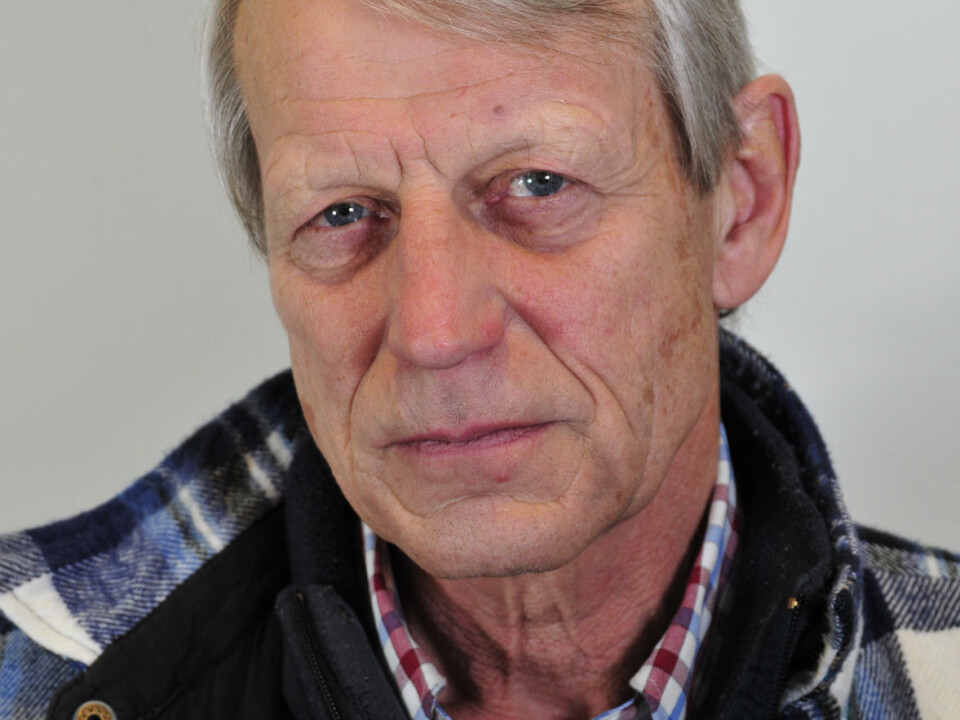
To vent or not to vent anger
Our genes, upbringing and culture determine how much we express our positive and negative emotions.
Denne artikkelen er over ti år gammel og kan inneholde utdatert informasjon.
Perhaps you’ve felt a spark of smouldering jealousy when somebody close to you suddenly seems a little too close to someone else.
Or maybe a traffic jam on a day you’re in a hurry has made you blow your top.
Do you rage and rant or do you silently count to ten and keep your cool? Which is best?
Norwegians and their Nordic neighbours are known for keeping a tighter lid on their feelings than people in many other parts of the world.

So are we like ducks, apparently at ease on the surface while paddling like mad beneath it?
According to science, the extent to which we control our feelings is individual and influenced both by our DNA and the people around us.
Upsides and downsides
Keeping a lid on your feelings is both positive and negative, according to Professor Per Einar Binder of the Faculty of Psychology at the University of Bergen.
“I think caution with regard to expressing aggression in public can be positive,” he says.

But when it comes to positive feelings, he thinks we could benefit by learning from people in more southerly latitudes.
“Norwegians tend to be a little more worried than people further south about smiling and making contact with others. Perhaps we should be a little more liberal with our display of positive feelings outside the private sphere,” he suggests.
Share with friends, not with everyone
It’s important for us to share our feelings with friends and family.
“Community ties are bolstered when we give an emotional response to other people’s feelings,” says the professor.
But he thinks society functions best if we refrain from an incessant display of feelings. In part this is because exposure to the negative feelings of others can be quite unpleasant.
“It can be really alarming and hard to handle when somebody is overtly angry.”
The tasks at hand require emotional controls
Things can certainly be trying if we transpose our feelings from one situation into another that is wholly different.
“If you’re an educator and you've had a row with your spouse, for instance, you don’t want to bring your feelings with you into the classroom. It’s better for you to air them with your spouse or a close friend.”
Binder thinks we often need to tuck away our emotions to carry out the tasks at hand.
But there’s an exception to every rule. Sometimes it’s good to share your problems or pains with others.
“In Oslo last year, after the July 22 terrorist attacks, we saw how positive it was to share our grief with others, rather than keeping it locked inside,” he says.
We misinterpret
Another reason why it can be a good idea to refrain from expressing immediate feelings is that we often simply misinterpret situations.
“Feelings like anger and envy can crop up from misconceptions.”
Binder thinks that if people displayed more of their negative feelings, this would snowball into a lot more arguments, disharmony and conflicts.
He points out that emotions are complex, and even if someone appears to be angry, they might actually be feeling hurt or depressed – or the reverse. Perhaps they act blue but are actually livid with rage. It depends on which feelings the individual finds easiest to express.
So when confronting negative feelings in others, we should be careful about exposing our reactions until we have ascertained what’s really going on.
We want to see others’ feelings
Although we might be reluctant to reveal our own feelings, we're curious about what’s going on behind the closed emotional doors around us.
This is one reason why people follow TV reality series year after year.
“Humans are fascinated by seeing emotional interplay and drama. We identify ourselves with the protagonists, whether in reality TV programme, a film or on the stage,” says Binder.
“Such drama can be enriching for us now and then, but there can be dire consequences for the participants who share their feelings with one and all on reality TV.”
Children and drunks
It’s said only children and drunks speak the truth.
The filter isn’t fully functional for either of them, and they don’t speak the same sort of truth.
“Inebriated adults often lack a certain sensitivity toward other people,” he says. “And what drunk people divulge about their feelings at any given time isn’t necessarily a very deep truth.”
But Binder feels children can be charming, expressive and creative when they say the first thing that pops into their minds.
Jealousy jazzes up democracy
According to anthropology Professor Emeritus Harald Beyer Broch of the University of Bergen, Norwegian democracy also pivots on people’s display of emotions.
“In our culture you aren’t supposed to show your envy of others. But envy is also a driving force in democracy because you can do something to obtain the same benefits as those you envy."
He emphasises that channelling envy into something productive for oneself is entirely different to simply sitting around and whining about the world being unfair.
Honesty isn’t always best
Asked whether we should be more or less candid than we generally are, the anthropologist says honesty relies on security.
“If you feel secure enough, you can be generally honest because you’re certain frankness won’t destroy the relationship.”
However, he doesn’t think we should share all our thoughts.
“There’s no point in being critically honest and judgemental if the person you’re communicating with can’t do anything about the situation, or make any changes in response to your criticism,” says Broch.
Translated by: Glenn Ostling

































